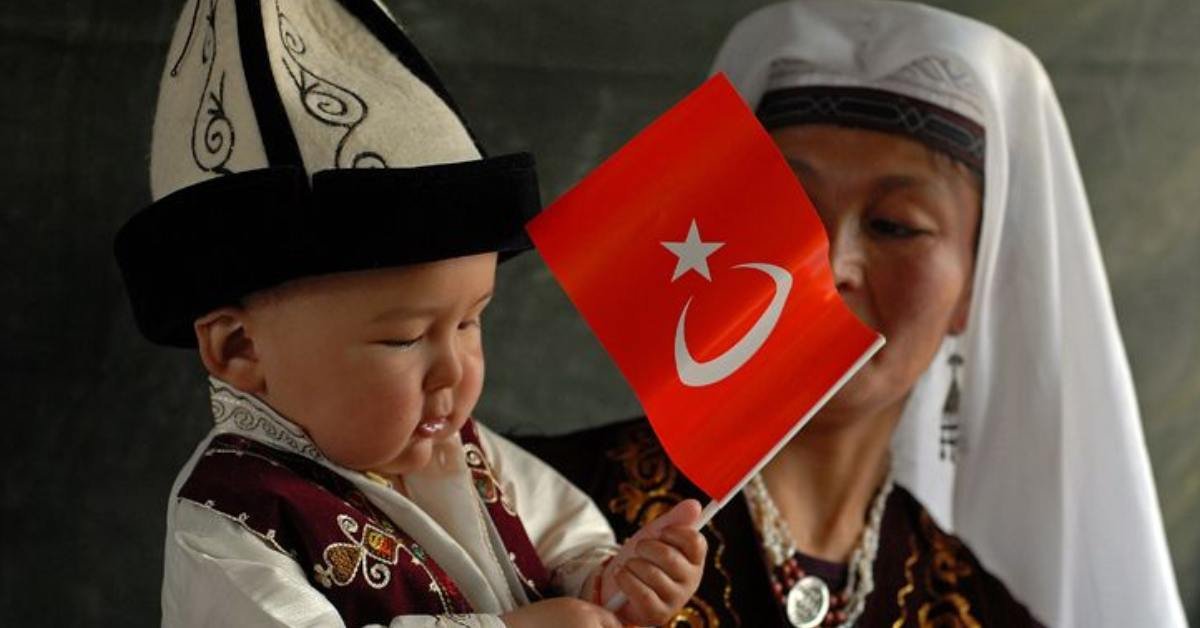Utanmaz Türklere: Debunking Myths and Misconceptions
Introduction
“Utanmaz Türklere,” meaning “shameless Turks,” carries significant weight in specific contexts. It’s often used in casual conversations and heated debates, but its implications go beyond mere words. What does this phrase mean, and why is it used? In this article, we’ll debunk common myths and misconceptions surrounding “Utanmaz Türklere,” explore its historical and cultural background, and analyze how it reflects on Turkish society.
By the end, you’ll better understand the origins and use of this controversial phrase.
What Does “Utanmaz Türklere” Mean?
At its core, the phrase “Utanmaz Türklere” can be directly translated to “shameless Turks.” It combines “utanmaz” (meaning shameless) and “Türklere” (referring to Turks or Turkish people). However, the context in which this phrase is used dramatically affects its meaning.
In some cases, it may be used humorously or ironically among friends. Still, it has been associated with negative stereotypes, criticisms, or frustrations aimed at Turks. Its derogatory tone can lead to misunderstandings, and its usage can sometimes fuel tensions in both social and political spheres.
The Historical and Cultural Context of “Utanmaz Türklere”
Historical Background
The phrase “Utanmaz Türklere” may seem relatively modern, but its roots are connected to the broader history of Turkish identity and interactions with foreign powers. During periods of conflict, especially between the Ottoman Empire and Europe, Turks were sometimes portrayed negatively in foreign media, with stereotypes that painted them as barbaric or uncultured.
While phrases like “Utanmaz Türklere” may not have appeared explicitly in history, the sentiment behind such expressions was rooted in centuries-old perceptions later adopted into modern vernacular.
Modern Usage
In modern times, “Utanmaz Türklere” has been used in various contexts. It can be found in online forums, social media discussions, and sometimes political discourse. It has evolved into a way for people to express frustration with certain behaviors or actions, often tied to national pride, politics, or cultural disagreements.
Myths and Misconceptions About “Utanmaz Türklere”
Myth 1: “Utanmaz Türklere” Is Always Meant as an Insult
One of the biggest misconceptions is that “Utanmaz Türklere” is inherently an insult. While it certainly can be used in a derogatory manner, it can also be used humorously or ironically. Much depends on the context, the relationship between the speaker and the listener, and the tone it delivers.
Myth 2: It Represents All Turks
Another misconception is that “Utanmaz Türklere” refers to all Turkish people. The phrase is often directed at specific individuals or groups whose behavior is deemed inappropriate rather than the Turkish population. Unfortunately, when used broadly, it can perpetuate negative stereotypes.
Myth 3: “Utanmaz Türklere” Has No Cultural Significance
Some believe this phrase is just a passing expression with no cultural importance. However, its repeated use in casual and political discourse means it carries weight in shaping public opinion and attitudes, particularly about national identity.
Social and Political Implications of Using “Utanmaz Türklere”
The usage of “Utanmaz Türklere” goes beyond personal interactions and delves into broader social and political dynamics. Here’s how it impacts different aspects of society:
National Identity
For many Turks, national identity is a source of pride. When phrases like “Utanmaz Türklere” are used by outsiders, it can provoke a defensive response, reinforcing a sense of unity or national solidarity among Turkish citizens.
Political Criticism
In political contexts, “Utanmaz Türklere” can be employed by those critical of specific government policies or actions. It’s often a way to express dissatisfaction with leadership or national trends, particularly in cases where individuals feel their values are being undermined or ignored.
Cultural Stereotypes
The phrase can reinforce negative cultural stereotypes, both within Turkey and internationally. If used carelessly, it can propagate harmful ideas about Turks being inherently shameless or immoral, which can fuel existing prejudices.
How Social Media and Online Platforms Affect the Spread of “Utanmaz Türklere”?
Increased Usage of Social Media
Social media platforms like Twitter and Facebook have contributed to the spread of phrases like “Utanmaz Türklere.” Often, the word expresses frustration or anger in heated discussions or debates. The viral nature of social media means such expressions can spread quickly, sometimes amplifying misunderstandings or hostility.
The Role of Online Forums
The phrase is often used in Turkish politics, cultural issues, or even international relations debates in online forums and discussion boards. These platforms usually allow for anonymity, leading to unfiltered and frequent use of such language without fear of direct consequences.
Impact on Public Perception
As “Utanmaz Türklere” spreads online, it can shape how people perceive Turkish culture and identity. For non-Turks, it may reinforce certain stereotypes, while for Turks, it can foster shame or defiance, depending on the context.
How to Respond to the Use of “Utanmaz Türklere”?
If you encounter the phrase “Utanmaz Türklere” in conversation, it’s essential to understand how to respond appropriately:
Analyze the Context
Before reacting, consider the context in which the phrase is used. Is it meant as a joke, a criticism, or an outright insult? Understanding the intent behind the words can guide your response.
Promote Constructive Dialogue
If you feel the phrase is being used harmfully, encourage a more constructive conversation. Asking the speaker why they think that way and offering alternative perspectives can help reduce tension and foster understanding.
Stay Calm and Composed
Anger or hatred in response will probably make things worse.Instead, staying calm and composed can help diffuse the tension and create space for more meaningful dialogue.
FAQs About “Utanmaz Türklere”
Q1: Is “Utanmaz Türklere” considered offensive?
It can be. While some people use humorously, it’s seen as derogatory in many contexts and can offend.
Q2: Why do people use “Utanmaz Türklere”?
The phrase is often used to express frustration with perceived shameless behavior. In political or social debates, it may target specific individuals or groups.
Q3: Is the phrase commonly used in Turkish culture?
It can be found in casual and formal contexts, especially in national behavior or identity debates.
Q4: What’s the best way to react if someone uses “Utanmaz Türklere” negatively?
Remain calm and understand the phrase’s intent. Engaging in constructive dialogue helps clarify misunderstandings.
Q5: Does “Utanmaz Türklere” apply to all Turkish people?
The phrase is generally directed at specific behaviors or groups, but it can be misused to generalize about the entire Turkish population.
Q6: How can I avoid misusing the phrase?
Be mindful of the context and consider how your words might be interpreted. If in doubt, avoid using phrases that could be offensive or inflammatory.
Conclusion
“Utanmaz Türklere” is a phrase with profound social and cultural implications. While humorously can be used, its frequent use in derogatory contexts makes it a loaded term that reflects broader issues of national identity, political tension, and cultural stereotypes.
We can promote a more nuanced understanding of its usage and impact by debunking myths and clarifying misconceptions.
As with any phrase, context is critical, and thoughtful dialogue can help prevent misunderstandings or unnecessary conflict.
Latest Post!
- The Ultimate Jerma Happy Thanksgiving Compilation
- French Stream.moe: A Complete Guide for Streaming Lovers
- Zola Hospice Fraud Scandal: What Went Wrong in the Healthcare System?
- FalloutFreebie.com: The Best Place for Free Fallout Games and Content
- Betechit News: Breaking Down the Biggest Stories in Technology
- Cinnego: The Ultimate Platform for Streaming Movies and Shows












